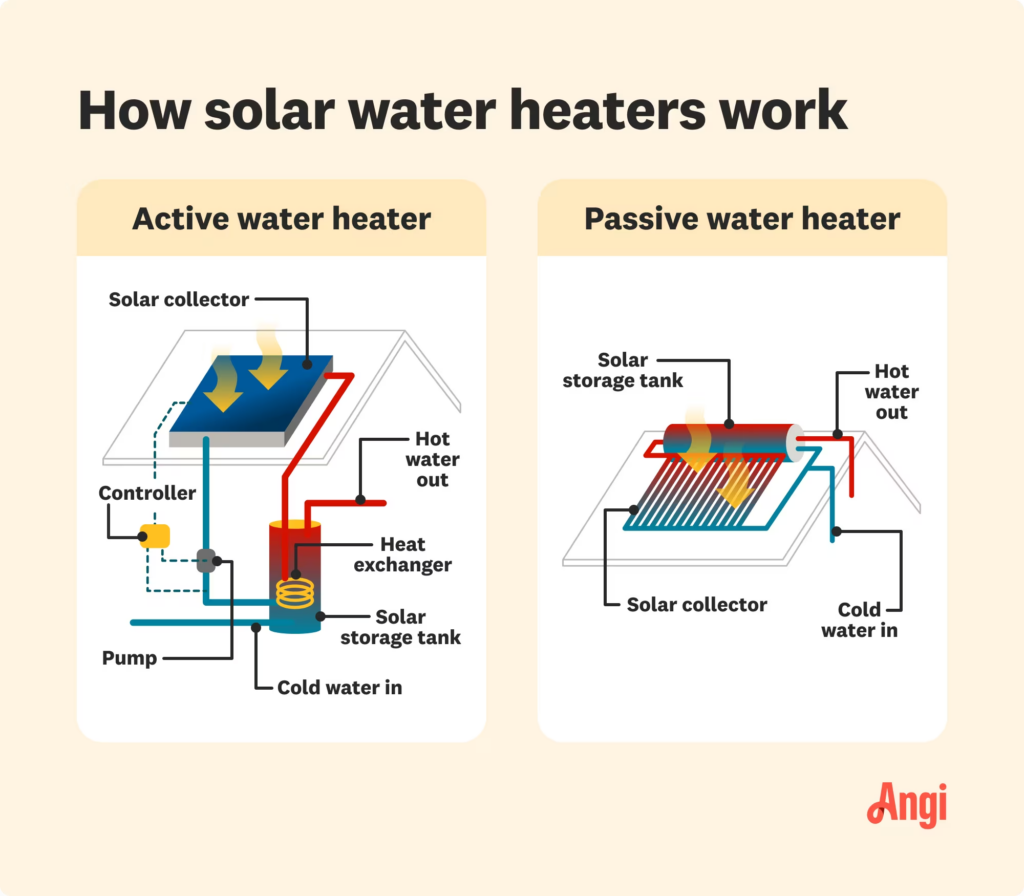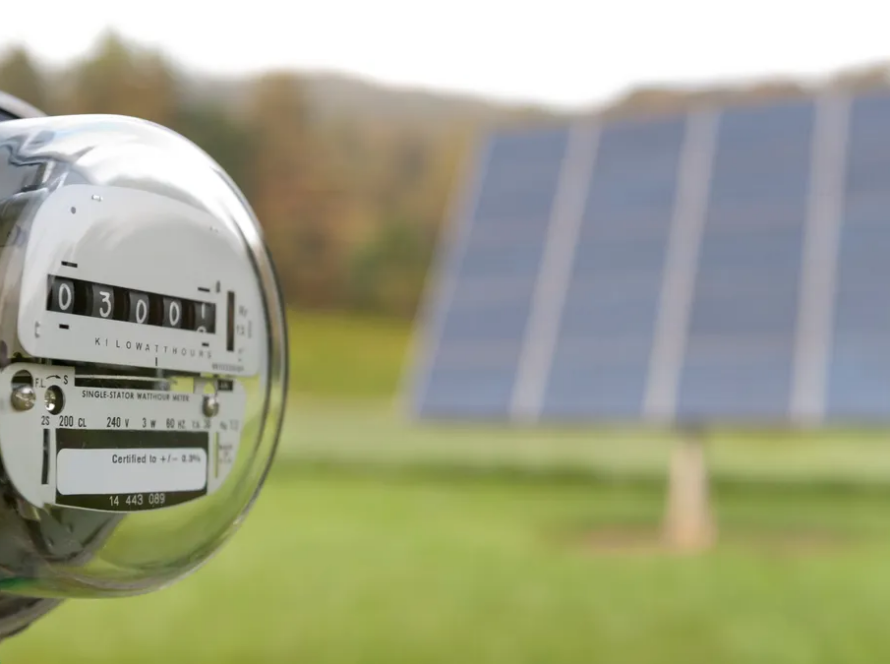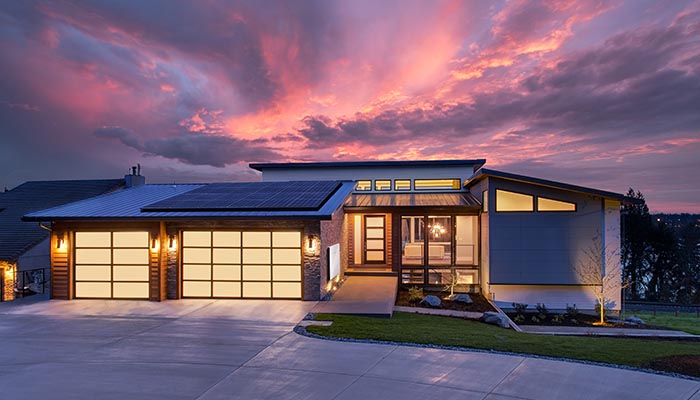
Water heaters are notorious for their impact on energy bills. They account for a significant portion of home energy use – up to 20% of a typical home’s energy use goes towards water heating.
According to the U.S. Energy Information Administration, a four-person household can consume nearly 22.7 million BTU per home for water heating, constituting 24% of overall consumption! In fact, water heating represents between thirteen and seventeen percent of national residential energy consumption, making it one of the major energy-consuming activities in homes.
As a major contributor to home energy use, looking at alternatives to traditionally energy sucking water heaters can not only lighten your energy bill but also lightens your footprint on the environment.

How Do Solar Water Heaters Work
Solar water heaters work around the electrical grid and instead use sunlight to heat water. They can be a cost-effective way to generate hot water for your home, and better yet, they work in any climate.
What’s the difference between a traditional water heater and one that sources its juice from the sun?
They are fundamentally similar with the exception of the way they power the heating element.
Solar Collector
The process begins with the solar collector, which is installed on the roof of your house. This collector absorbs the sun’s energy and converts it into heat. There are two types of solar collectors: flat-plate collectors and evacuated-tube solar collectors.
Flat Plate Collectors
Flat-plate collectors are insulated, weatherproofed boxes containing a dark absorber plate under one or more glass or plastic covers.
Evacuated Tube Solar Collectors
Evacuated tube solar collectors feature parallel rows of transparent glass tubes, inside of which are absorber plates.
Heat Transfer
In a direct (or active) solar water heater, the water flows through the system and gets heated directly by the sun. In an indirect (or passive) system, a heat transfer fluid (like antifreeze) circulates through the collector, which is heated by the sun. This heated fluid then passes through a heat exchanger in the storage tank, transferring the heat to the water.
Storage Tank
The hot water is stored in an insulated tank, ready for use. The tank has an inlet and an outlet that connects to the solar collector. In one-tank systems, the backup heater is combined with the solar storage in one tank. In two-tank systems, the solar water heater preheats water before it enters the conventional water heater.

Benefits of Using Solar Water Heaters
By choosing a solar water heater, homeowners can significantly reduce their carbon footprint, contribute to energy security, and save money on their energy bills. It’s a win-win solution for both the environment and the homeowner.
Environmental Impact
Solar water heaters generate heat from the sun, a renewable resource, instead of burning fossil fuels like natural gas or oil. By using solar energy, these systems can reduce greenhouse gas emissions associated with traditional water heaters.
By harnessing the power of the sun, solar water heaters can reduce dependence on fossil fuels for heating water. This not only reduces carbon emissions but also contributes to energy security by reducing reliance on imported fuel.
Economic Benefits
While the initial investment may be higher, solar water heaters can result in significant savings over time due to lower energy costs. These savings can offset the initial investment and even result in net savings over the lifespan of the system.
Energy Efficiency
The sun provides a virtually limitless source of energy. Unlike fossil fuels, which are finite and will eventually run out, solar energy is a sustainable resource that will be available for as long as the sun shines.
Solar water heaters are generally more energy-efficient than traditional models. They convert sunlight directly into heat, which can be used immediately or stored for later use. This process is far more efficient than burning fossil fuels to produce heat.
Installation and Maintenance of Solar Water Heaters
Installing and maintaining solar water heaters involves a number of factors, and it requires careful attention to ensure optimal performance and longevity.
Installation
The installation process of solar water heaters depends on several factors, including climate, local building code requirements, and safety issues. It’s recommended that professionals take care of the installation process to ensure proper setup and adherence to safety protocols.
A standard unit consists of a storage tank and solar collector. Once all the pre-installation tasks are completed, the solar water heating system can be installed.
Maintenance
installation and maintenance are key to maximizing the benefits of solar water heaters. While initial setup may require professional assistance, ongoing maintenance can often be managed by homeowners with some basic understanding of the system.
Regular and periodic maintenance is crucial for the efficiency and longevity of solar water heaters. It’s recommended that preventive maintenance be done at least once a year. However, depending on the type of system, the condition of the water in your area, and the model of your heater, maintenance may be needed every 3 to 5 years.
Maintenance should include checking the solar collectors and frames for damage, noting broken or leaking tubes, cleaning the exterior of the solar water heater, and flushing out water from the tank annually.

Costs and Savings of Solar Water Heaters
Solar water heaters, while having an upfront cost, can provide significant savings over time. Here’s a breakdown of the costs and potential savings based on various sources.
Costs
The cost of solar water heaters can vary depending on the type of system (active or passive), the size of the system, and the region in which you live.
The cost estimate for household-sized solar water heaters is around $100 per square foot of collector area or an average between $3,000 to $13,000 with installation.
Savings
Despite the initial cost, solar water heaters can lead to substantial savings over time.
The Department of Energy states:
“ On average, if you install a solar water heater, your water heating bills should drop 50%–80%. Also, because the sun is free, you’re protected from future fuel shortages and price hikes. If you’re building a new home or refinancing, the economics are even more attractive.”
Savings estimates vary for solar heater savings. According to Energy Star, you can save about $140 annually or $2,900 over the lifetime of the water heater if you combine solar with a backup gas storage water heater.
Tax credits can additionally contribute to up to $1,300, bringing down overall costs. Don’t waste time in the energy of old.
Let Americus Energy help you bring down your bills and be free of the traditional power grid!


